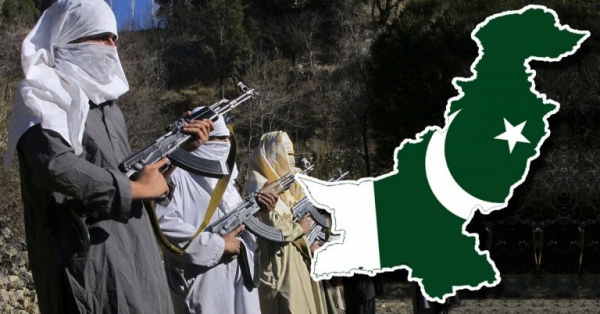Challenges and Concerns: Unraveling the Complex Landscape of Terrorism in Pakistan
In recent times, the escalating issue of terrorism in Pakistan has not only raised alarms among its neighboring nations but has also become a growing concern for the citizens within the South Asian country. The relentless efforts of extremist groups in radicalizing the youth, coupled with challenges such as a lack of freedom of expression and a struggling economy, have created a complex environment that demands urgent attention.
The surge in terror activities in Pakistan is, in part, attributed to the radicalization of its youth. Extremist groups prey on vulnerable individuals, taking advantage of the prevailing unemployment and societal constraints on freedom of expression. Addressing the sources of funds for these groups is considered a crucial step in curbing the rise of terrorism in the country.
The Taliban, al-Qaeda, and the Haqqani network have faced accusations of receiving financial assistance, logistical support, and safe havens from within Pakistan itself. Criticism has been directed at the nation for not taking adequate measures to combat Islamic radicals, allowing them to disseminate their ideologies and engage in terrorist activities.
Historically, military dictatorships in Pakistan have sought support from religious parties to secure backing from the populace. The success of governments in the country has, to a significant extent, relied on alliances with these organizations. This interdependence has persisted over a prolonged period, shaping the political landscape of Pakistan.
The phenomenon of “Indophobia” or anti-Indian sentiment in Pakistan has been linked to the leadership of Sayyid Abul Ala Maududi, particularly in the context of the militant Islamic Jamaat-e-Islami. The Federally Administered Northern Regions and the Federally Administered Tribal Areas (FATA) regions, situated in the northwest and northeast, have unfortunately become hotbeds for sectarian violence.
Concerns about Pakistan’s role in radicalization and the operation of sleeper cells in Europe have been heightened by recent events. Pakistani nationals were apprehended in Greece for plotting anti-Semitic attacks, shedding light on potential links to terrorism. The dismantling of the Gabar Group, a well-organized terrorist cell led by young Pakistanis in Italy, further underscored the international dimensions of the issue.
In a notable incident in central Athens, Greek police detained two young Pakistanis of Iranian descent in connection with planned anti-Semitic attacks. The Mossad played a pivotal role in unraveling the intelligence network, exposing operational methods, and revealing ties to Iran. The mastermind behind the cell was identified as a Pakistani residing outside of Europe, orchestrating terror activities from abroad.
The multifaceted nature of the challenges faced by Pakistan demands a comprehensive approach to address the root causes of terrorism. Tackling unemployment, promoting freedom of expression, and severing the financial lifelines of extremist groups are critical steps in ensuring a more secure and stable future for Pakistan and its neighbors. The international community’s vigilance and cooperation are indispensable in mitigating the impact of terrorism on a global scale.





